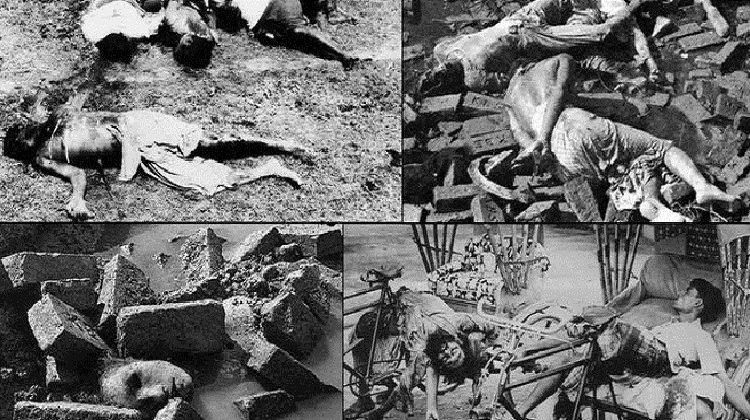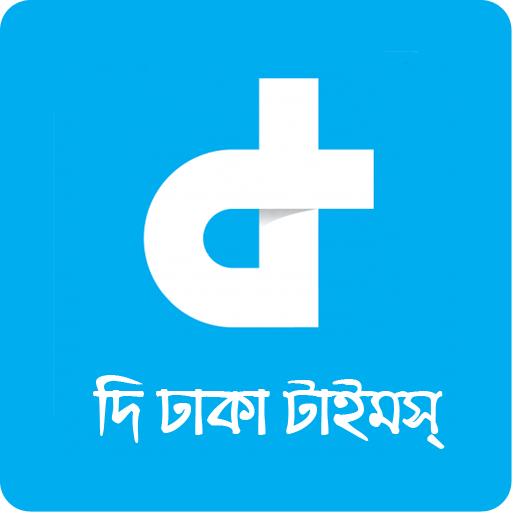The Dhaka Times Desk The night of March 25, 1971 was one of the worst nights for the Bengali nation. The barbaric Pakistani army was rejoicing in the darkest night of the worst massacre in human history.

Dhaka city was a ruin. After 1971, even though so many years have passed, the night of such terror did not come again on 25th March.
The entire nation will remember those who died on March 25th by shutting off the electricity (black out) for one minute from 10.30 to 10.31 tonight.
On this day in 1971 i.e. 25th March, those men wanted to suppress the Bengali nationalist, independence movement by armed attack through a planned massacre carried out by the infamous Pakistani army called 'Operation Searchlight'.
This massacre was carried out on the orders of the West Pakistani rulers, which was a military offensive following 'Operation Blitz' in November 1970.
The real objective of the Pakistani military operation of March 25 was to capture all the major cities of independence-seeking Bangladesh and the then East Pakistan and wipe out the political and military opposition within a month.
However, the fearless Bengalis resisted and started the war of independence. The 25th March massacre made Bengalis angrier and more protestant. Apamar Bengalis took part in the armed liberation war that triggered the liberation war of Bangladesh and the Bengalis were engaged in the struggle to expel the occupying Pakistani forces. As a result, independent sovereign Bangladesh was established on December 16, 1971 through the unconditional surrender of the Pakistani army.
25th March is associated with successive stages of Bengali political struggle. After years of intense mass agitation, after the Awami League won an absolute majority in the 1970 elections under the leadership of Bangabandhu Sheikh Mujib, Bengalis naturally expected that there would be a change of power and that the Awami League would form a government according to the 6 points. However, on 28 February 1971, the then President and Army Chief Yahya Khan, at the instigation and pressure of PPP's Zulfikar Ali Bhutto, adjourned the proceedings of the National Assembly till March.
PPP's Zulfikar Ali Bhutto also said that he wants to keep Bengalis out of power. Awami League organized a mass meeting on 7th March 1971 to protest against this suspension. Bangabandhu's historic speech was such a success that the public gathering was so successful that the government of Pakistan was reduced to army camps and government institutions in East Pakistan and the entire country came under the leadership of Bangabandhu.
In such a situation, General Yahya came to Dhaka in mid-March for a meeting with Bangabandhu and then Bhutto joined him. However, they started various excuses in order not to transfer power to Awami League in the name of negotiation. The West Pakistani ruling class feared that if power was transferred to Bangabandhu by popular vote, the authority of the Pakistan People's Party would diminish. That is why the Pakistani generals secretly supported PPP's Bhutto and finally launched an army attack on the entire Bengali nation to deprive Bengalis of their legitimate right to political power.
According to the history, Major General Khadim Hussain Raza and Major General Rao Farman Ali, GOC of the 14th Division, prepared the main plan of the operation in the beginning of March based on the recommendations taken in a meeting of the Pakistan Armed Forces on February 22, 1971. General Gul Hasan was behind them. According to the decision of the meeting, the 16th Infantry Division from Quetta in West Pakistan and the 19th Division from Khrian were ordered to prepare to move to East Pakistan by mid-February.
Pakistan's senior military officer East Pakistan GOC Lt. General Sahibzada Yakub Khan and Governor of East Pakistan Vice Admiral SM Ahsan were relieved of duty before the operation because they were opposed to military attacks on the civilian population of East Pakistan. General Tikka Khan, condemned as the Butcher of Balochistan, was sent as Governor and GOC of East Pakistan.
On March 17, Pakistan Army COS General Hamid entrusted General Raza with the task of planning the operation over the telephone. On the morning of March 18, General Raja and Major General Rao Farman Ali, sitting in the GOC office of Dhaka Cantonment, made a plan for the operation. The plan was also written by General Forman himself with lead pencil across 5 pages of a light blue colored office pad.
It was assumed that the Bengali army would mutiny at the start of the operation, so the planners, in talks with President Yahya Khan, proposed disarming the Bengali soldiers before the operation and arresting the Bengali political leaders. The plan again on March 20 General Hamid and Lieut. General Tikka reviewed.
The operation then began in the late hours of the night of 25th March in Dhaka and other garrisons were alerted through phone calls to begin their operations at their zero hour (the predetermined time of commencement of the operation). Rao Farman Ali was in command of the troops in Dhaka and General Khadem Hossain Raja was in command of the troops in all other places. General Tikka and his officers were present at the 31st Command Center to supervise everything and to assist the officers of the 14th Division.
So it can be said without doubt that the massacre of 25th March is infamous for military attacks on unarmed people in the history of the world and a burning witness to the brutality of Pakistani forces. In spite of the devastation and killings of 25th March, the rise of the Bengali nation like a phoenix bird and the achievement of freedom by defeating the invaders through the armed liberation war is rare in world history and will forever be written in world history as a matter of historical glory.
Things to do to prevent Corona virus
# try to stay at home all the time.
# Follow the rules and use mask when going out for emergency.
# three-layer cloth mask can be washed if desired.
# wash clothes after coming home from outside. Or hang it without shaking for at least four hours.
# Wash hands thoroughly (for at least 20 seconds) with soap or liquid before coming outside.
# plastic PPE or eyes, face, head must be washed thoroughly with detergent and dried after one use.
# Wear PPE made of cloth or clean as described.
# Use a head cap that completely covers the hair.
# Those who have sneeze cough should follow all the rules promulgated by the government. Also, wash hands as directed before and after handling food items, keys, switches, mice, remote controls, mobiles, watches, computer desks, TVs, etc. and after using the bathroom. Those who have dry hands use Moisture after washing their hands. Soap or hand liquid can be used. Why can this virus remain in the crackle (cracked part) of dry hands? Avoid using highly alkaline soaps or detergents.


